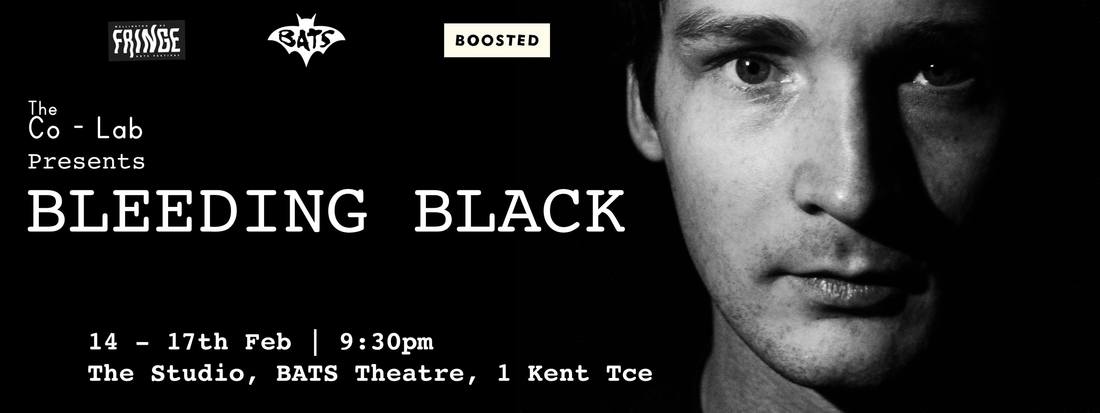Corey Spence
The comedy is ripe in the first half, with well-placed and well-timed one-liners keeping us engaged. Sam, as a character, is charming with an array of little jokes about being a New Zealander and rugby culture. When Sam becomes aware that he has walked into the KIWI 101 examination room, he exclaims he should pass just for showing up: he has lived in New Zealand all his life, after all. The audience erupts in laughter, setting up a light tone for the evening. As Sam’s fuck-ups accumulate, the show takes a more serious turn, the comedy bleeding out.
Bleeding Black is at its best when its physical moments run forefront, such as the several training and running montages. Watching Watts working hard as he shuttle runs across the stage, shouting out remembered coach’s “advice”; his audience appreciates the dedication. It’s a great example of show, don’t tell. It’s more engaging as an audience member to watch a story unfold before you on stage, rather than an actor spouting details. The audience misses these during the show’s talky second half.
The show isn’t complex technically, but the design elements it does incorporate fit well within its world. During the training montages, the tech operator* sporadically blows a whistle, signifying the orders from Sam’s coach; although, perhaps too loud for a small space like The Studio. The lighting design creates shadows and expresses the passage of time in the montages. Though, the lights on Watts could do with a few more watts.
Watts’ script brings up key factors of the ‘kiwi bloke’ mentality: binge drinking away problems and repressing their feelings. There is a beautiful moment of vulnerability with Sam tackling his depression, where he loses himself in rugby and the obsession only makes him fall deeper. More depth to these vulnerable moments would help Bleeding Black separate itself from other shows about rugby and kiwi masculinity. Presently, I feel the intended message is not the message the audience receives. Bleeding Black feels as though it’s trying to tell kiwi blokes where they’re going wrong, but disguises rugby as the scapegoat. There are few (if any) redeeming qualities about Sam because of his actions, and it reads as though rugby culture receives the singular blame for Sam’s behaviour.
Bleeding Black is a promising venture with a good foundation to build on; there are elements of something greater hidden beneath the show’s surface, and further development will help bring that out. It has endearing moments and resonates with its audience. It’s humorous and well-intentioned, but doesn’t quite reach the goal-line.
* I am unsure of the tech operator’s name, as it is not mentioned in the programme.
NB: While I have no issue with the themes and content covered in the show, I do think the creative team needed to make their audience more aware of the depicted domestic violence within the show, as I was unaware of any such themes. While there was one content warning poster in the venue, it was easily missed, and audience members would be more likely to see the content warning poster if it were, for example, on the door into the performance space. There was also no mention of this in the Fringe programme or the show’s own programme.






